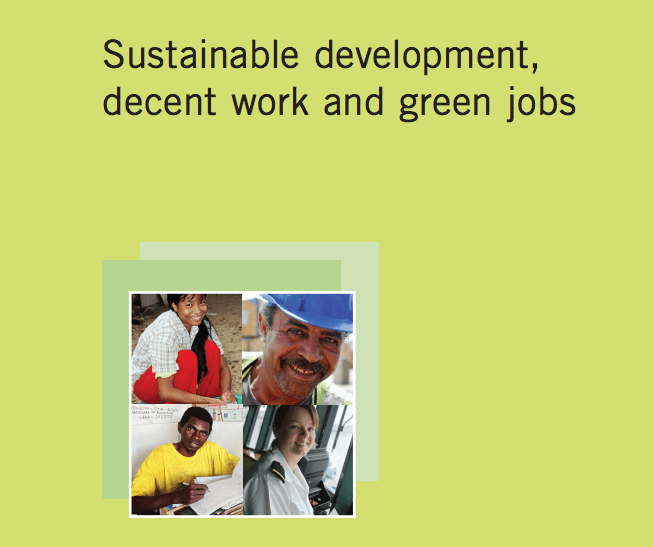
Co-operatives play a positive role in enabling sustainable development, according to the International Labour Organization (ILO).
A new ILO report, Sustainable development, decent work and green jobs, describes co-ops as providers of affordable clean energy. In the US they account for 11 per cent of the total electricity delivered and serve 42 million people across 47 states. In Argentina, the co-operative Sociedad Cooperativa Popular Limitada de Comodoro Rivadavia provides energy at lower cost than the monopoly utility. The co-op has 600 employees and owns the largest wind park in the country, with 17 per cent of its total energy production being clean energy generation.
Co-operatives play an important role in Germany’s Energy Sector. Greenpeace Germany, the largest energy co-operative in the country, has 22,000 members and more than 100,000 customers. It provides 100 per cent renewable energy at affordable prices through wind and solar plants and hydrology.
In Bangladesh, a similar rural electrification programme to the one developed in the US includes 70 rural energy co-operatives that employ 16,000 people and grant 30 million people in rural areas access to electricity.
According to the report, co-operatives can also enable access to know-how inputs, finance and markets at fair prices. The report provides various examples of successful co-operatives such as Ormonia Coffee Growers in Ethiopia, empowering 200,000 producers of organically drown coffee, or the Kaupa Kokoo, a cocoa co-operative from Ghana that helps farmers to gain access to the global market. ILO’s report reveals that in Costa Rica and India, co-operatives have become leaders in the production of carbon-neutral coffee and in using agricultural residues for power generation.
The report also places a strong emphasis on the important role of co-operatives in recycling, particularly through waste-picker co-operatives. The report adds that these co-ops should be recognised by municipal authorities, as it was the case in Brazil, Colombia or Sri Lanka.
It also calls on all co-operatives to green their production processes, including through greater energy efficiency and resource use, mentioning that this work should be carries out in co-operation with national employee and worker organisations.
According to ILO document, governments should also make sure the existing legislative frameworks provide an enabling environment and assist enterprises, including co-operatives, in this transition process.




